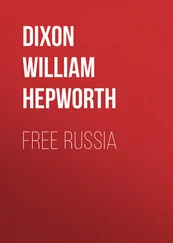Nikolai Nekrasov - Who Can Be Happy and Free in Russia?
Здесь есть возможность читать онлайн «Nikolai Nekrasov - Who Can Be Happy and Free in Russia?» весь текст электронной книги совершенно бесплатно (целиком полную версию без сокращений). В некоторых случаях можно слушать аудио, скачать через торрент в формате fb2 и присутствует краткое содержание. Год выпуска: 2005, Жанр: Поэзия, на английском языке. Описание произведения, (предисловие) а так же отзывы посетителей доступны на портале библиотеки ЛибКат.
- Название:Who Can Be Happy and Free in Russia?
- Автор:
- Жанр:
- Год:2005
- ISBN:нет данных
- Рейтинг книги:3 / 5. Голосов: 1
-
Избранное:Добавить в избранное
- Отзывы:
-
Ваша оценка:
- 60
- 1
- 2
- 3
- 4
- 5
Who Can Be Happy and Free in Russia?: краткое содержание, описание и аннотация
Предлагаем к чтению аннотацию, описание, краткое содержание или предисловие (зависит от того, что написал сам автор книги «Who Can Be Happy and Free in Russia?»). Если вы не нашли необходимую информацию о книге — напишите в комментариях, мы постараемся отыскать её.
Who Can Be Happy and Free in Russia? — читать онлайн бесплатно полную книгу (весь текст) целиком
Ниже представлен текст книги, разбитый по страницам. Система сохранения места последней прочитанной страницы, позволяет с удобством читать онлайн бесплатно книгу «Who Can Be Happy and Free in Russia?», без необходимости каждый раз заново искать на чём Вы остановились. Поставьте закладку, и сможете в любой момент перейти на страницу, на которой закончили чтение.
Интервал:
Закладка:
"But let me explain."
"I see you are all fools,"
A voice remarks roughly:
The voice of a trader
Who squeezes the peasants 270
For laputs or berries
Or any spare trifles.
But chiefly he's noted
For seizing occasions
When taxes are gathered,
And peasants' possessions
Are bartered at auction.
"You start a discussion
And miss the chief point.
Why, who's the worst sinner? 280
Consider a moment."
"Well, who then? You tell us."
"The robber, of course."
"You've not been a serf, man,"
Says Klímka in answer;
"The burden was heavy,
But not on your shoulders.
Your pockets are full,
So the robber alarms you;
The robber with this case 290
Has nothing to do."
"The case of the robber
Defending the robber,"
The other retorts.
"Now, pray!" bellows Klímka,
And leaping upon him,
He punches his jaw.
The trader repays him
With buffets as hearty,
"Take leave of your carcase!" 300
He roars.
"Here's a tussle!"
The peasants are clearing
A space for the battle;
They do not prevent it
Nor do they applaud it.
The blows fall like hail.
"I'll kill you, I'll kill you!
Write home to your parents!"
"I'll kill you, I'll kill you! 310
Heh, send for the pope!"
The trader, bent double
By Klímka, who, clutching
His hair, drags his head down,
Repeating, "He's bowing!"
Cries, "Stop, that's enough!"
When Klímka has freed him
He sits on a log,
And says, wiping his face
With a broadly-checked muffler, 320
"No wonder he conquered:
He ploughs not, he reaps not,
Does nothing but doctor
The pigs and the horses;
Of course he gets strong!"
The peasants are laughing,
And Klímka says, mocking,
"Here, try a bit more!"
"Come on, then! I'm ready,"
The trader says stoutly, 330
And rolling his sleeves up,
He spits on his palms.
"The hour has now sounded
For me, though a sinner,
To speak and unite you,"
Ióna pronounces.
The whole of the evening
That diffident pilgrim
Has sat without speaking,
And crossed himself, sighing. 340
The trader's delighted,
And Klímka replies not.
The rest, without speaking,
Sit down on the ground.
CHAPTER II
PILGRIMS AND WANDERERS
We know that in Russia
Are numbers of people
Who wander at large
Without kindred or home.
They sow not, they reap not,
They feed at the fountain
That's common to all,
That nourishes likewise
The tiniest mouse
And the mightiest army:
The sweat of the peasant. 10
The peasants will tell you
That whole populations
Of villages sometimes
Turn out in the autumn
To wander like pilgrims.
They beg, and esteem it
A paying profession.
The people consider
That misery drives them 20
More often than cunning,
And so to the pilgrims
Contribute their mite.
Of course, there are cases
Of downright deception:
One pilgrim's a thief,
Or another may wheedle
Some cloth from the wife
Of a peasant, exchanging
Some "sanctified wafers" 30
Or "tears of the Virgin"
He's brought from Mount Athos,
And then she'll discover
He's been but as far
As a cloister near Moscow.
One saintly old greybeard
Enraptured the people
By wonderful singing,
And offered to teach
The young girls of the village 40
The songs of the church
With their mothers' permission.
And all through the winter
He locked himself up
With the girls in a stable.
From thence, sometimes singing
Was heard, but more often
Came laughter and giggles.
Well, what was the upshot?
He taught them no singing, 50
But ruined them all.
Some Masters so skilful
There are, they will even
Lay siege to the ladies.
They first to the kitchens
Make sure of admission,
And then through the maids
Gained access to the mistress.
See, there he goes, strutting
Along through the courtyard 60
And jingling the keys
Of the house like a Barin.
And soon he will spit
In the teeth of the peasants;
The pious old women,
Who always before
At the house have been welcome,
He'll speedily banish.
The people, however,
Can see in these pilgrims 70
A good side as well.
For, who begs the money
For building the churches?
And who keeps the convent's
Collecting-box full?
And many, though useless,
Are perfectly harmless;
But some are uncanny,
One can't understand them:
The people know Fóma, 80
With chains round his middle
Some six stones in weight;
How summer and winter
He walks about barefoot,
And constantly mutters
Of Heaven knows what.
His life, though, is godly:
A stone for his pillow,
A crust for his dinner.
The people know also 90
The old man, Nikífor,
Adherent, most strange,
Of the sect called "The Hiders."
One day he appeared
In Usólovo village
Upbraiding the people
For lack of religion,
And calling them forth
To the great virgin forest
To seek for salvation. 100
The chief of police
Of the district just happened
To be in the village
And heard his oration:
"Ho! Question the madman!"
"Thou foe of Christ Jesus!
Thou Antichrist's herald!"
Nikífor retorts.
The Elders are nudging him:
"Now, then, be silent!" 110
He pays no attention.
They drag him to prison.
He stands in the waggon,
Undauntedly chiding
The chief of police,
And loudly he cries
To the people who follow him:
"Woe to you! Woe to you! Bondsmen, I mourn for you!
Though you're in rags, e'en the rags shall be torn from you!
Fiercely with knouts in the past did they mangle you: 120
Clutches of iron in the future will strangle you!"
The people are crossing
Themselves. The Nachálnik [56] Chief of Police.
Is striking the prophet:
"Remember the Judge
Of Jerusalem, sinner!"
The driver's so frightened
The reins have escaped him,
His hair stands on end….
And when will the people 130
Forget Yevressína,
Miraculous widow?
Let cholera only
Break out in a village:
At once like an envoy
Of God she appears.
She nurses and fosters
And buries the peasants.
Интервал:
Закладка:
Похожие книги на «Who Can Be Happy and Free in Russia?»
Представляем Вашему вниманию похожие книги на «Who Can Be Happy and Free in Russia?» списком для выбора. Мы отобрали схожую по названию и смыслу литературу в надежде предоставить читателям больше вариантов отыскать новые, интересные, ещё непрочитанные произведения.
Обсуждение, отзывы о книге «Who Can Be Happy and Free in Russia?» и просто собственные мнения читателей. Оставьте ваши комментарии, напишите, что Вы думаете о произведении, его смысле или главных героях. Укажите что конкретно понравилось, а что нет, и почему Вы так считаете.











